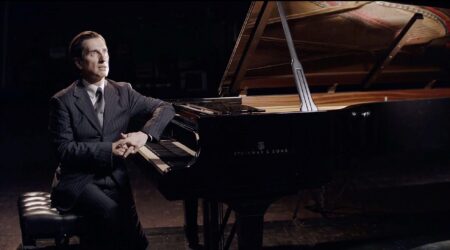Black Drops
by Jayne Wilson When I was five years old, my parents lost me in a department store. I had stepped off the escalator too early, maybe, or too late, and suddenly there I was, standing alone in the lingerie department flanked by scantily-clad mannequins. I blinked, stupidly. And then I cried. This would’ve been traumatizing […]
by Jayne Wilson

When I was five years old, my parents lost me in a department store. I had stepped off the escalator too early, maybe, or too late, and suddenly there I was, standing alone in the lingerie department flanked by scantily-clad mannequins. I blinked, stupidly. And then I cried.
This would’ve been traumatizing but okay if the whole thing had been a mistake. Like if my parents had assumed I was right behind them, flopping along in my kiddie birkenstocks, or even if they had just gotten momentarily distracted by the sheer amount of lace and had gone for closer inspection. But the real sticking point of that moment – a moment I can recall with potent lucidity to this day – was when I turned around frantically to see my parents scampering towards the opposite escalator, looking back at me with dancing, laughing eyes, leaving me on purpose. Something about it was supposed to be funny, I could tell even then, but all I remember feeling like was a joke, a pawn, and my tears the predictable punch line.
Now, 18 years later, I walk closely to my friends; I wander off on my own at the mall or at the bookstore but will catch myself peeking unconsciously in between clothing racks and bookshelves to spot the familiar crown of a familiar head just to reassure myself that I haven’t been left. And if I have been left, I stop looking for them at all. You wandered off once, I think. Let me leave definitively before you do it again. I love my parents. But in that helpless moment where I could do nothing but look hysterically about myself and bite my lips, I recognized the unpredictability, the unreliability, the fleeting, bolting, slippery quality of all people and all things – and it scared the Belgian waffles out of me. It’s a fear that has stuck to me like an adhesive strip, quietly shaping and informing my behavior.
Ralph Waldo Emerson calls this “the black drop.” He asks, “How shall a man escape from his ancestors, or draw off from his veins the black drop which he drew from his father’s or his mother’s life?” Though he was undoubtedly referring to large, multifaceted events, and genetic, inescapable markers that predispose and incline our tendencies, I believe his meaning can be stretched to include the countless little gems of memory that litter the tapestries of our lives. Insignificant as they may seem, their contribution to the effect of the me as a whole person is integral. No act is taken for granted.
Justin Torres’s recently released novella, We the Animals is a stark, truthful, and ultimately forgiving exploration of just this very concept. Through a series of short, snap-shot-esque scenes and vignettes, Torres constructs a subtle but well-balanced narrative on three brothers and how their coming-of-age both as individuals and as a unit is intricately and inexplicably linked to the tumultuous relationship between their erratic, violent father, and their absent, emotionally trodden mother. But while this theme of unwanted familial legacies could easily cause any other writer to take on a preachy and didactic tone, Torres’s metaphor-rich and illustrative voice emits only sympathy and understanding at the same time that it delivers nothing by the harshest and oft-overlooked truths. No character is spared from his critical, introspective eye, but no character escapes his mercy, either; where in one scene the father has swum away from his wife and youngest son, has let them go, unlearned and unprotected, into the water, in the next scene he watches fondly from the door of a theatre as this same youngest son dances, and thinks only of what a pretty son he’s got. Torres’s masterful prose style is further anchored by his skill in always giving just enough – each scene, each chapter, is set perfectly in its own world, is complete in its own way, and is sharp with emotive detail and vulnerability. He lets each moment stand on its own right, knowing full well that it is of no consequence how long it spans, or how large it is in scope – the impact is what counts. A black drop, no matter how small, is a black drop nonetheless, and it stirs with the same steady vibration inside us all.
Perhaps I should have laughed along with my parents all those years ago, or stayed perfectly still, perfectly calm, and waited for a return that I should have known would be inevitable. Maybe I should have been more relieved than angry when this return did, finally, come. But I had flagged a lady down, cried and told her I was lost, and when my parents came, laughing and smiling, and this lady turned to look at me and asked, “Is this your mom and dad?” I held onto my anger a little longer, held her hand a little tighter, and as much as it hurt me to say, I spitefully said, “No. It’s not.” Has it shaped the totality of me, the totality of my parents? No. But, just like everything else, it shaped enough.
Jayne Wilson writes fiction about the likes of decapitated gnomes, compulsive hoarders, and sardonic old men. She laughs pathetically at her own jokes and is generally an impish mess. She graduated from the University of California, Davis in 2010 with a degree in English-Creative Writing.





